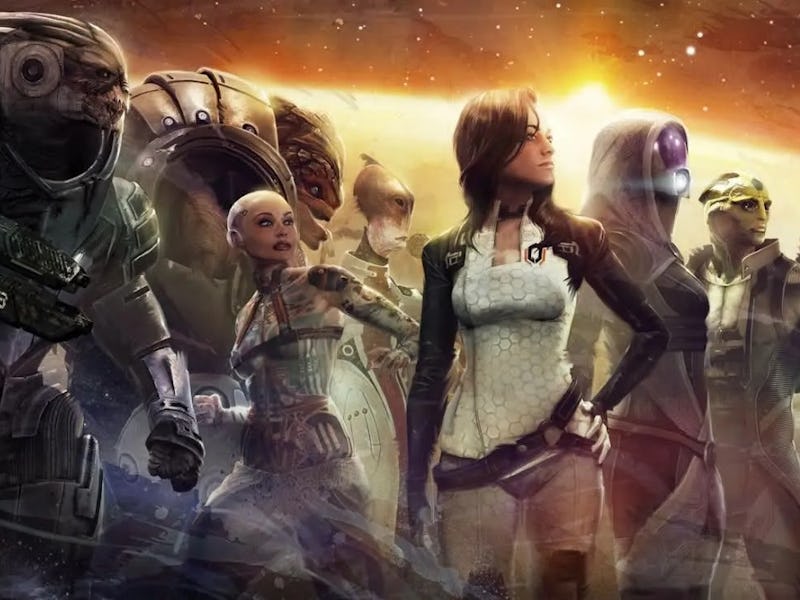13 years ago, one sci-fi game revolutionized RPGs forever
Choice and consequence.

Video games are inherently power fantasies, but Mass Effect 2’s opening completely strips that power away, forcing you to watch helplessly as Commander Shepard slowly suffocates in the void of space. It’s a startling and unsettling beginning that brilliantly sets the stage for a game that consistently bucks tradition, and doesn’t ever pull its punches. Mass Effect 2 is a rare sequel that takes the foundations of the previous game, but strips away everything that didn’t work, replacing it with bold new ideas. BioWare took chances, both mechanically and narratively, and it paid off wildly to create one of the most mesmerizing RPGs ever made.
The stakes are already set ridiculously high in Mass Effect 2, with the mysterious Collectors taking Commander Shepard out. After being brought back to life by the criminal organization Cerberus, you’re set to the task of gathering a crew for a suicide mission to infiltrate the Collector base. It’s a pretty grim setup that lets you know that survival is not guaranteed — for anybody.
There’s so much you could talk about with Mass Effect 2, from the drastically improved shooting to the phenomenal sound design, but perhaps the most important thing the game does is all tied to its ending, and how your relationship with party members ties into that.
Each party member in Mass Effect 2 has a complex backstory to explore, and getting to know them is essential for success in the end-game.
Your time in Mass Effect 2 has you galaxy-hopping to recruit the most ragtag group of fighters imaginable. A grizzle vigilante fighter, a test tube Krogan genetically engineered as weapons, and a psychopathic biotic powerhouse. These are just a few members of the eclectic squad you put together, and the party members are what really make Mass Effect 2 so special. Each member is fantastically written and incredibly complex, and BioWare intentionally made each of their personal stories feel weighty and relevant to the overall narrative of the franchise.
By getting to know Mordin Solus you learn more about the Krogan Genophage and see how his role in its creation has haunted him ever since. Becoming close to Jacob means you learn more about corruption in the Systems Alliance, and why even a straight-laced soldier like him would join a criminal organization like Cerberus.
This is a prime example of how everything in Mass Effect 2 matters, seemingly small choices, innocuous sidequests, and bits of dialogue. If side content isn’t world-building it’s contributing to your chances of a successful suicide mission, giving you some new piece of tech, or building up trust with a party member so they’ll perform better.
The suicide mission is an unforgettable finale that puts real weight behind your choices.
There’s a slow tension build across the entire experience, and the valve is opened entirely when you assault the Collector Base. For this vital mission, you put all of your ship upgrades to use and have to pick and choose the right party members for a variety of jobs, such as who protects the party with a biotic barrier and who leads a secondary squad. So many of your choice can affect this mission; not having the right upgrades can lead to the demise of various party members, just like how choosing the wrong party member can.
What’s remarkable about the suicide mission is that every single party member can be eliminated, and it’s even possible for Shepard themselves to fall, leaving Joker as the sole surviving member of the Normandy. It’s a bold design decision that makes your choices feel like they have real weight, as they can lead to the end of Shepard’s best friends.
After the bombastic opening of Mass Effect 2, you think there’s no way it can be topped, but the final hours gloriously put that opening to shame with real stakes and emotion. While the suicide mission is absolutely a standout, each step of Mass Effect 2’s journey is enthralling and it’s easily one of BioWare’s best in terms of world-building and storytelling. It’s the title that solidified Mass Effect as one of gaming’s greats, and in many ways, it still serves as the standard choice-based RPGs should aspire to.
This article was originally published on